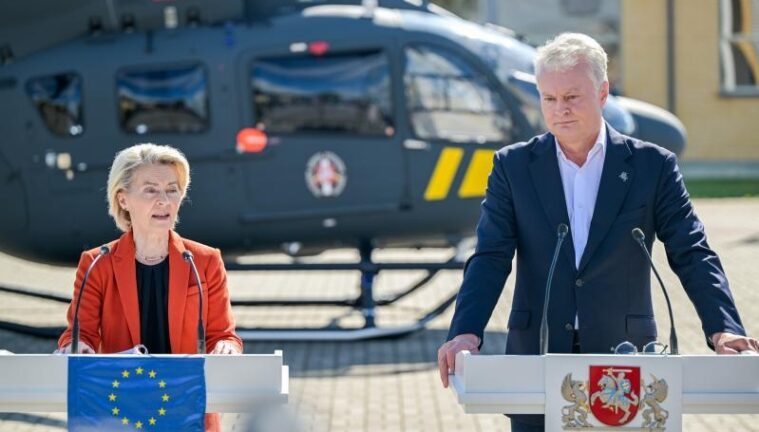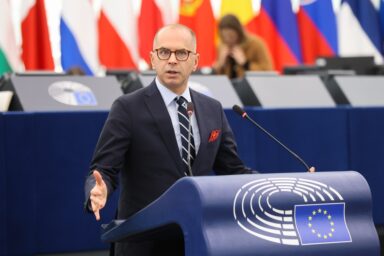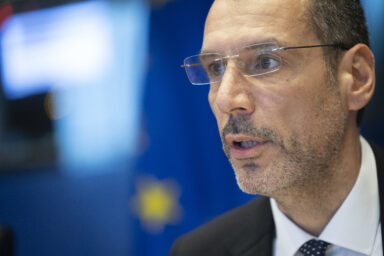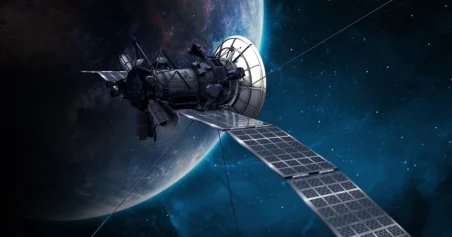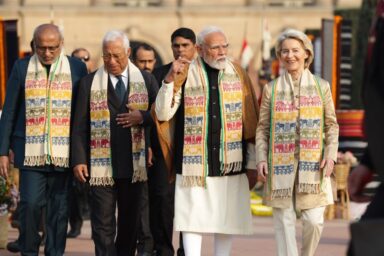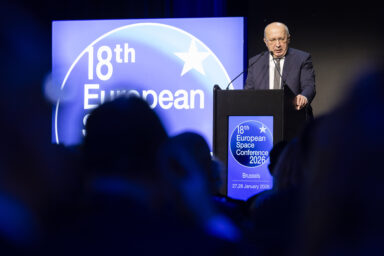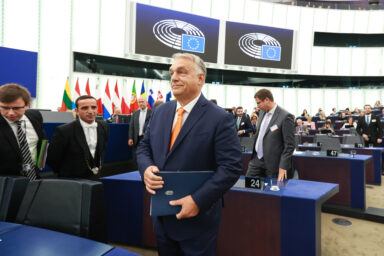The European Union’s €150bn SAFE plan to turbocharge investment in its defence industry will see Warsaw emerge as the main beneficiary, Commission President Ursula von der Leyen declared on Sunday.
“Poland will be the biggest beneficiary of this common investment for joint procurement,” European Commission President Ursula von der Leyen said during a press briefing at Poland’s fortified border with Belarus, flanked by heavy security. The initiative is part of the bloc’s Security Action for Europe (SAFE) programme.
SAFE aims to bolster military readiness amid Russia’s war in Ukraine and jitters over America’s reliability under a potential second Trump presidency. Von der Leyen’s eastern tour, covering seven frontline states, took on symbolic heft as she defied reported security risks to hold the event near Belarus, Bloomberg reports.
Zero concessions
Polish Prime Minister Donald Tusk praised Ms von der Leyen’s resolve: “She told me what I wanted to hear: ‘zero concessions, nobody will frighten us’.” Poland, which borders both Ukraine and Russia’s Kaliningrad exclave, already leads the EU in defence spending relative to economic size—pumping nearly fove per cent of GDP into its military. Such outlays have widened its budget deficit to among the bloc’s largest, complicating fiscal stability.
The SAFE scheme, which 19 member states have signalled interest in, prioritises joint procurement of drones, missile systems, cyber-defence tools and a pan-European air shield. Brussels will present an investment roadmap within weeks, with national governments set to debate it in October.
You might be interested
(Ursula von der Leyen) told me what I wanted to hear: Zero concessions, nobody will frighten us. — Donald Tusk, Polish PM
The push mirrors NATO’s recent pledge to lift defence spending towards fove per cent of GDP. The target gained fresh urgency after Donald Trump’s repeated harangues over European underspending. Alliance members now project combined defence budgets to exceed $1.5tn by 2025.
Pretty precise plans
For Poland, the EU’s financial pledge offers both strategic reassurance and fiscal relief. As the continent’s eastern anchor, Warsaw has long warned of Russian revanchism—a stance sharpened by Minsk’s weaponisation of migrant flows and alleged border provocations. Yet von der Leyen’s gambit also underscores a broader recalibration: with American commitments in doubt, EU capitals are scrambling to convert cash into credible deterrence. The coming months will test whether rhetoric and roadmaps can harden into real firepower.
Ms von der Leyen’s remarks came on the same day as her widely quoted statements about European capitals having drawn up “pretty precise plans” for possible military deployments to Ukraine. The effort is part of post-conflict security guarantees backed by American support.
In an interview with the Financial Times during a tour of eastern EU states bordering Russia, she outlined a “clear road map” for troop commitments and stressed the urgency of reinforcing Europe’s military readiness. “Security guarantees are paramount and absolutely crucial,” she said. “We had an agreement in the White House…and this work is going forward very well.”
Urgency over sovereignty
The Commission president‘s remarks also come ahead of a meeting this week where European leaders will formalise national pledges to a western force, blending multinational deployments with what she termed the “backstop of the Americans”—a reference to Donald Trump’s assurances of ongoing US involvement.
The plans respond to Ukraine’s demand for concrete security commitments, including western troops on its soil, as part of any peace deal to end Russia’s three-and-a-half-year war. Proposed deployments could involve tens of thousands of European personnel, supported by American intelligence and command systems—an arrangement agreed during talks last month between Mr Trump, Ukraine’s President Volodymyr Zelensky, and senior EU figures.
When we say something, we do it. — Ursula von der Leyen, European Commission President
Those discussions will resume in Paris on Thursday at a summit convened by French President Emmanuel Macron, attended by Germany’s Chancellor Friedrich Merz, Britain’s Keir Starmer, NATO chief Mark Rutte, and Ms von der Leyen. Defence chiefs from a “coalition of the willing” have already addressed logistics for troop build-ups. Sovereignty remains a hurdle—“deploying troops is one of the most important sovereign decisions”—but urgency prevails. “It’s moving forward. It’s really taking shape.”
The Russian predator
Ms von der Leyen’s confidence in transatlantic unity marks a shift. European capitals had fretted over Mr Trump’s past praise for Vladimir Putin and friction with Mr Zelensky. But the commission chief now credits the US president with consistent backing. “President Trump reassured us that there will be [an] American presence…That was very clear and repeatedly affirmed.”
She framed Mr Putin as an intransigent adversary—“a predator” who “does not do what he says”—while lauding Europe’s reliability. “When we say something, we do it.” Post-conflict security would hinge on a beefed-up Ukrainian army, requiring “sustainable financing” from the EU. Kyiv will need “quite a sizeable number of soldiers…good salaries…modern equipment”, Ms von der Leyen said, stressing that Brussels must “chip in”. Existing aid would continue, but “an extra payment…has to be provided for the Ukrainian armed forces”.
